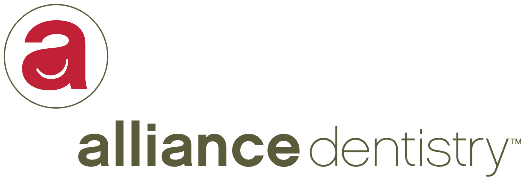Many people are not aware that allergies can play an important role in their dental health. Individuals that have hay fever (also called allergic rhinitis) often have dental conditions that can range from tooth pain to malocclusion (crooked teeth).
Malocclusion
Malocclusion, as a result of allergic rhinitis or hay fever, commonly begins in children with allergies. These children complain of constant nasal congestion. In addition, these children may also have other hay fever symptoms such as:
- runny nose
- itchy nose
- postnasal drip
- itchy eyes
- watery eyes
- redness of the eyes
- puffy eyes
- sore throat
- itchy ears
- sinus congestion
- sinus pain
- Headaches
- Fatigue
- recurrent sinus infections
When a child has chronic nasal congestion, they become “mouth breathers” which, in a developing child, may cause the palate in the mouth to develop abnormally. These children develop in an abnormally high arched palate.
Consequently, the teeth “grow in” crooked and malocclusion occurs. These children will then need to see an Orthodontist for years of braces that are both expensive and relatively uncomfortable. Many times, malocclusion can be prevented by seeking early treatment of chronic nasal congestion. A board certified Washington DC allergist will perform a thorough history and physical examination as well as test the child for environmental allergies.
There are many forms of therapy for allergic rhinitis which generally includes prevention of the offending allergens, if possible after the allergens are identified by the allergist. In addition, there are a variety of medications that may be used including antihistamines, decongestants, other oral medications, nasal sprays, eye drops, and allergy immunotherapy (allergy shots). Allergy shots are effective in 80-85% of individuals and have been given for more than 100 years. Most people are on allergy shots for 3-5 years.
Tooth Pain
Tooth pain also can be a result of allergies. People with allergic rhinitis, as mentioned above, are more prone to sinus infections. A common symptom of an acute sinus infection (also called acute sinusitis) is tooth pain. Other symptoms of a sinus infection include:
- nasal congestion
- sinus congestion
- sinus pressure
- sinus pain
- post-nasal drip
- Cough
- discolored mucus from the nose
- occasionally a low grade fever
The tooth pain is a result of the sinus pressure. The sinus pain radiates to the teeth and this pain is a type of “referred pain.” Typically a sinus infection in the maxillary sinuses (the “cheek sinuses”) will cause a referred pain to the upper teeth. Many individuals will seek a dentist’s care first, not realizing that their teeth pain is actually not the primary problem. After the dentist tells the patient that their teeth are fine, they then tend to seek medical care with their primary care physician, allergist, or ENT doctor, realizing that it may be their sinuses that is causing their tooth discomfort. The treatment of the sinus infection, usually with antibiotics will relieve the tooth pain.
Allergies to Common Anesthetics
Another “allergy” complaint that dentists see with their patients frequently is local anesthetic (“numbing medicine”) allergies. Many individuals will tell their dentist that they have an allergy to “Novacain.” Dentists frequently have to use a local anesthetic before they can do certain dental procedures such as pulling teeth, root canals, putting in crowns, dental implants, etc. in order to prevent pain from occurring in their patients during these procedures. Most of the time the “allergy” symptoms described by the patient are really a side effect of the Epinephrine (adrenaline) that is frequently mixed in with the local anesthetic rather than a true allergy to the anesthetic itself.
Epinephrine is usually mixed in with the local anesthetic as a way to constrict the small blood vessels in the mouth which helps prevent excessive bleeding during dental procedures. The most common local anesthetics used are categorized as “Caine drugs.” Some examples of “Caine drugs” include Novacain (procaine), Xylocaine (lidocaine), Marcaine (bupivacaine), Carbocaine (mepivacaine), and Pontocaine (tetracaine).
Some people are truly allergic to the local anesthetic and some are even allergic to the preservatives found in the local anesthetic. Luckily, most people who think they are allergic to a “Caine drug” usually are not when skin tested by an allergist. It is important, however, to see a board certified allergist and have skin testing performed to rule out a “Caine drug” allergy, as such an allergy can be very serious and potentially life-threatening. The allergists at Black & Kletz Allergy, located in the Washington, DC, Northern Virginia, and Maryland metropolitan area routinely see patients with this potential allergy and skin test them to a specific local anesthetic in the “Caine drug” class at one of our 3 office locations. If the skin testing to a specific “Caine drug” is negative, then the allergist will let your dentist know that is fine to use that particular medication. Note that it is possible to be allergic to one specific “Caine drug” but not another specific “Caine drug.” (Example: One can be allergic to Xylocaine but not Novacain or vice versa).
Knowing Could Make All The Difference
It is important for individuals, as well as dentists and physicians, to be aware that there are several associations between the fields of dentistry and allergy. One must recognize that in addition to the typical antibiotic and medication allergies that exist and that are recognized in all fields of health care, there are these additional considerations, as mentioned above, that are fairly specific to the fields of allergy and dentistry. Recognizing these associations and treating the underlying allergies can be of great benefit to both the dental and medical well-being of the general public.
Thanks to our friend and blog author, Dr. Michael R. Kletz of Black & Kletz Allergy, for his insight into the role allergies play in oral health.
